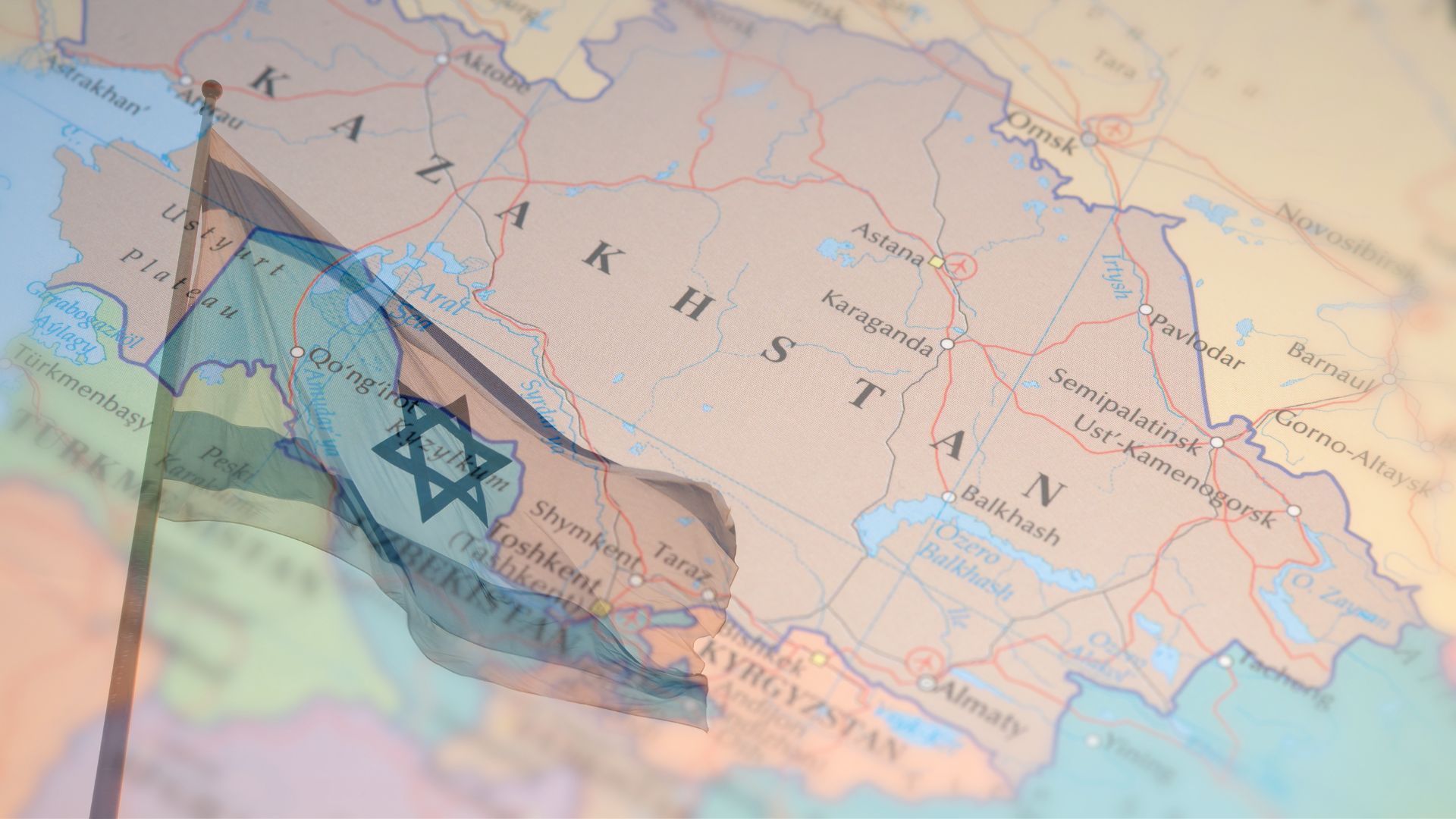Alwaght- After collapse of the Soviet Union, Central Asia has become a scene for competition of foreign actors. In recent years, with the increase in the geopolitical rivalry among regional and international powers over a broader role in the global trade, energy, and transit, the capacities of former soviet republic have gained significance more than ever.
Meanwhile, the Israeli regime as an actor is no exception and is increasingly seeking ways for boosting presence and influence in Central Asia.
Israel viewed relations with Central Asia as a way to expand its circle of friendly Muslim nations, increase its regional influence, and break out of its diplomatic isolation. For the Central Asian states, however, this partnership offered a chance to diversify their international allies, gain access to Israeli expertise and technology, and establish a unique channel with the US via Tel Aviv.
While Israel began cultivating ties with the region in the early 1990s, the process initially moved slowly and remained peripheral to its broader foreign policy. This hesitancy stemmed from deeply-held assumptions among the Tel Aviv elite: the memory of Soviet support for the Arabs and Palestinians, the perception of Central Asian Muslim sympathy for Saddam Hussein during the 1991 Persian Gulf War, Israel's past failures in engaging the Muslim world, and a general unfamiliarity with the region.
However, over time, these assumptions shifted. The primary catalyst for Israel's strategic reassessment was its confrontation with the Resistance Axis, led by the Islamic Republic of Iran, which it perceives as the most significant existential threat to its future. Tel Aviv grew intensely alarmed as it watched Iran's cultural and commercial activities expand in nations like Tajikistan and Turkmenistan. The spread of Iranian influence and the ideology of the Islamic Revolution could rip the regional scales in Tehran's favor.
So, two years ago, the Israeli regime decided to open its embassy in Ashgsbat, the capital of Turkmenistan. This move drew international attention, with political experts describing it a sign of fundamental change in the Israeli approach to Central Asia, a change that has gone beyond diplomatic and economic areas to cover geopolitics and security. Opening of embassy in Turkmenistan bore witness to the Israeli efforts to set up security bases next to the Iranian borders for monitoring Iranian moves and even leading intelligence operations against Tehran.
The Gaza war has further intensified the stakes. The Israeli army's crimes in this Palestinian region have galvanized public sentiment across Central Asia, fueling a spirit of resistance, particularly among the region's youth. In Kazakhstan, an online petition is now circulating, demanding a halt to oil exports to Israel. Activist groups are also mobilizing calls to boycott brands supporting Israel. This public pressure is significant because Kazakhstan has, in recent years, become a key oil supplier to Israel.
Simultaneously, we are seeing a rise in grassroots humanitarian action. In Kyrgyzstan, groups of Muslim and Orthodox Christian activists have launched independent campaigns to collect aid for the residents of Gaza while some regional governments are actively trying to suppress any unofficial expressions of support for Hamas. In a clear example, Uzbek authorities moved to ban all pro-Palestinian demonstrations and prosecuted over 100 individuals for attempting to organize a pro-Hamas rally in Tashkent's Amir Timur Square.
From the perspective of the Israeli regime's strategic interests, the current situation among certain Tajik groups in Central Asia represents a new and dangerous development. Israeli security officials assess that hundreds, if not thousands, of potential fighters from Central Asia, primarily ethnic Tajiks, but also Uzbeks and Kyrgyz, could be recruited by anti-Israeli and takfiri ideologies, potentially deploying to the occupied Palestinian territories.
They view the growing Iranian influence among Tajiks, facilitated by poor economic conditions in Afghanistan and Tajikistan and deep-rooted cultural, religious, and linguistic ties, with severe apprehension. Tel Aviv sees this as a potential breeding ground for radical anti-Israeli movements. This perceived threat has been a key driver behind Israel's intensified efforts to expand its security cooperation footprint across the region in recent years.
A second, parallel pillar of Israeli strategy involves deepening economic and technological ties. Kazakhstan, for instance, exports oil to Israel and receives military technology in return. Uzbekistan maintains active cooperation with Tel Aviv in trade and medical technology. Furthermore, Israel has an active role in the irrigation and agriculture technologies which present major challenges to the region.
These moves are part of the Central Asian governments' multi-vector foreign policy, a strategy aimed at creating balance with regard to the three major powers of Eurasia: China, Russia, and the West. The recent closeness between China and Russia and their confrontation with the West has created a complex geopolitical situation for the region, which remains heavily dependent on Moscow and Beijing. Consequently, Central Asian states are keen to strengthen ties with the West to counterbalance this reliance.
Israel's relationship model with these countries appears to bear a strong resemblance to its Periphery Doctrine of the 1950s and 60s, potentially opening a new front in its security contest with Iran. During the recent 12-day war, numerous reports surfaced of Mossad activity in Azerbaijan and Iraq's Kurdistan region. While none were officially confirmed, the pattern of these maneuvers and Tel Aviv's role in applying military and strategic pressure on Iran is undeniable. It is now evident that the Israeli regime has decided to tighten the ring of its security containment and reactivate its military and security operations along Iran's eastern frontiers.
In general, the Israeli moves in Central Asia are indicating re-definition of Tel Aviv’s regional strategies and focus on geopolitical and security edges around Iran. This approach shift not only is a reflection of strategic and security concerns of Tel Aviv, but also can have massive consequences to regional stability and balance. In such context, Central Asia has become a setting for competition of big powers and a sensitive scene for strategic interests of Iran and Israel. So, the course of developments in this region will have a determining role in the future of regional policies.



























